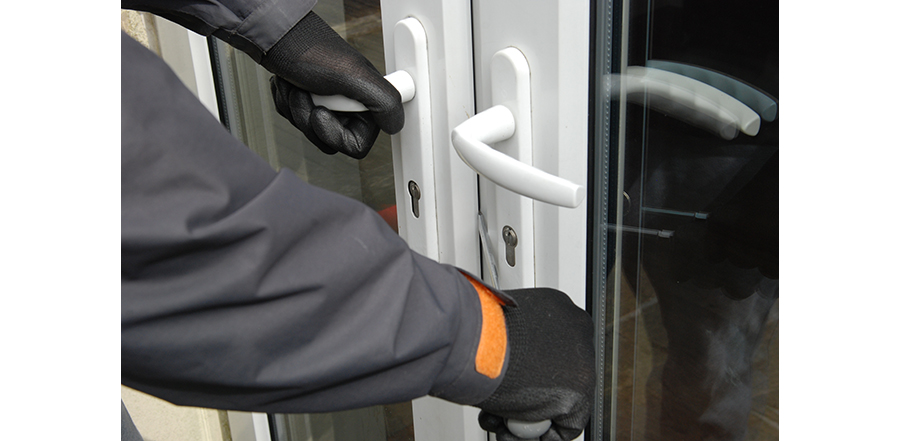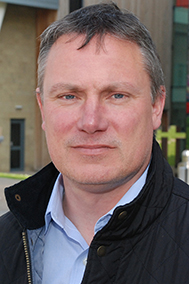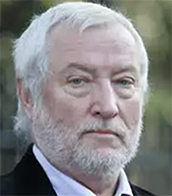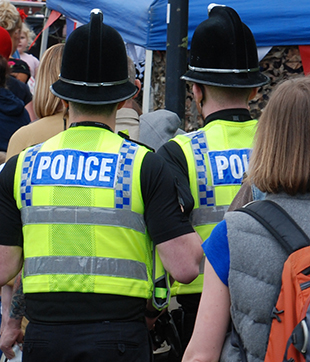New book shows way for Self-Selection Policing

Tue, 01 Nov 2016 15:28:00 GMT
“…the beginning of book is about research into criminal careers and shows that serious criminals do commit small offences…”
 CRIMINALS who are serious offenders also commit minor misdemeanours and these can be the very offences that lead them to be identified and located by the authorities. It was this insight – that “those who do big bad things also do little bad things” – that led University of Huddersfield criminologists to develop a tool they have dubbed “self-selection policing”.
CRIMINALS who are serious offenders also commit minor misdemeanours and these can be the very offences that lead them to be identified and located by the authorities. It was this insight – that “those who do big bad things also do little bad things” – that led University of Huddersfield criminologists to develop a tool they have dubbed “self-selection policing”.
Police officers have found it a highly useful technique and it is also proving of increasing interest to analysts and researchers. Now, it is summarised in a new book that acts as a guide to both the practice and theory behind a valuable method for crime control.
 The authors of Self-Selection Policing are Dr Jason Roach (pictured right), who is Reader in Crime and Policing at the University of Huddersfield, in tandem with his former colleague and mentor Professor Ken Pease (pictured left), who founded the University’s Applied Criminology Centre.
The authors of Self-Selection Policing are Dr Jason Roach (pictured right), who is Reader in Crime and Policing at the University of Huddersfield, in tandem with his former colleague and mentor Professor Ken Pease (pictured left), who founded the University’s Applied Criminology Centre.
It was Professor Pease who laid the foundation for self-selection policing in the 1990s, when he carried out research in Huddersfield into cars that were illicitly parked in disabled bays, even when other spaces were available. He discovered that 25 per cent of the perpetrators were people of interest to the police.
More research followed from Professor Pease and Dr Roach, leading to such discoveries that a disproportionate number of minor driving offences were committed by serious offenders sought by police. Dr Roach’s projects included a study of offending by visitors to a prison and of people who failed to produce driving documents in the timescale required by the police.
 The new book summarises past research and some more recent work, said Dr Roach. This includes an investigation of people who drive while disqualified – often an indication of even more serious criminality.
The new book summarises past research and some more recent work, said Dr Roach. This includes an investigation of people who drive while disqualified – often an indication of even more serious criminality.
The book is aimed at a readership that can draw ether academic or practical value from its content, continued Dr Roach, who has been gratified by the reaction of serving police officers to the concept of self-selection policing and how it reinforces their ideas.
“They have found it to be highly intuitive and those that have been on the job for a while say ‘Oh, we already do that. We just didn’t know what it was!”.
They might have been told by superiors that they no longer had time to carry out routine checks into minor offences, so they were grateful to Dr Roach for providing them with evidence of the value of doing this, potentially leading to the capture of serious criminals.
“But it was also important to support our ideas theoretically,” said Dr Roach. “So the beginning of book is about research into criminal careers and shows that serious criminals do commit small offences.”
The authors of Self-Selection Policing also make suggestions for future research and provide practical guidance on how the approaches they describe can be implemented.
- Self-Selection Policing: Theory, Research and Practice, by Jason Roach and Ken Pease, is published by Palgrave Macmillan.







